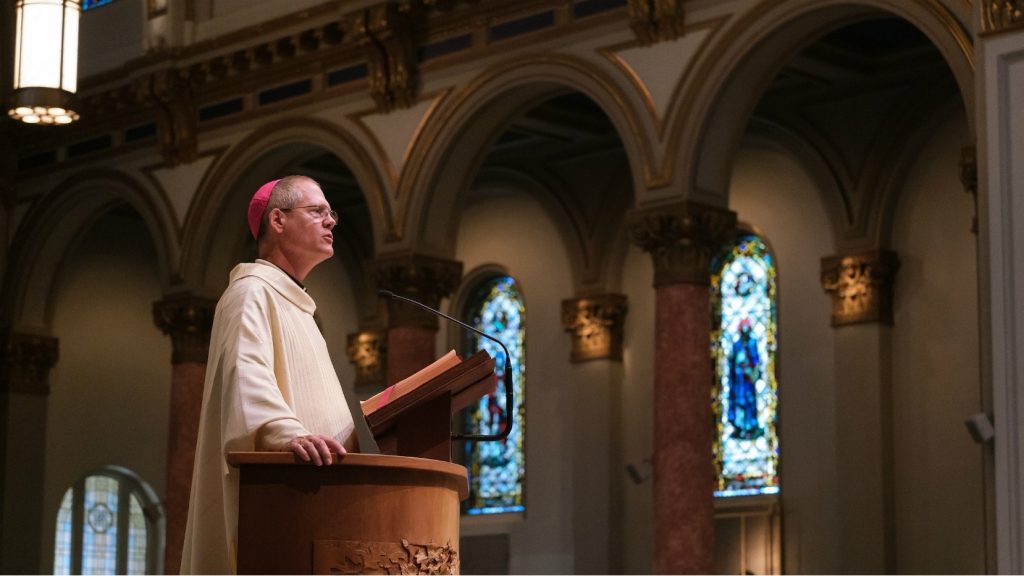Tuesday, September 3, 2019
What a difference the stroke of the clock makes, at about 3 o’clock this morning Seattle time.
I want to thank Archbishop Sartain in this day that begins a new chapter in the life of this local church, and certainly within my own life, and I know within your life as well. I’m just very grateful for the very humble and yet gracious way you’ve brought me on board in these last three months, and I’m sure that I will continue to benefit in the months and years ahead from all the good work that you’ve done here in the last nine years, so thank you for your service.
I am struck, in both readings — what we heard first from the letter of Paul to the Thessalonians and from the Gospel of Luke tonight — by the comparison, even the coexistence, of darkness and light. We all know that coexistence in our own lives, don’t we? We know that coexistence in the world.
And it seems that we are living in a time that wants to keep even the conversation and the focus on the negative — maybe not on darkness and sin and evil and the presence of the demon, but certainly the tone of negativity.
And one of my many hopes this day is that we can change the tone of the conversation, at least in Western Washington, to a positive focus. And we do that by really being clear about the mission, which has always been the mission of the church, to proclaim good news. And St. Paul tells us in the first reading tonight that Christ did not come for condemnation, he came for our salvation. He came to conquer the darkness, and so St. Paul wants the people of his time, and certainly the people of our time, to realize that we are children of light and of the day. And what that requires of us is a conscious awareness of that truth and conscious awareness of the source of that truth: the person of Jesus Christ.
Jesus casts out the demon in this Gospel passage tonight, and I always find it interesting in this passage that the demon very clearly knows who Jesus is, and even proclaims that reality in the midst of those that are with him. He calls him Jesus of Nazareth, and he realizes that Jesus has the power to destroy him: “I know who you are — the Holy One of God!”
So this evil is cast out of the person, and the people notice it: “What is there about his word?” And, my friends, that’s another one of my many hopes today for us as church, is that we will live the truth and the light of our faith so well in the world that people will say something similar about us: “What is it about those Catholics? Because I want what they have. I want their joy, their peace, their inner contentment, their hope.”
Because, my friends, all that is ours. And I firmly believe it is what Jesus wants us to live vibrantly, not just for our sake, but for those who live around us, those that we live in the midst of. Because this is how the kingdom is proclaimed. It is how the kingdom of God advances. And I believe, by the will of God and the grace of Jesus Christ and the gift of his salvation, it is how light continues to conquer the darkness today.
Let us give thanks in this Eucharist and in every Eucharist for the gift of salvation, and let us beg for this grace for all of God’s people, no matter their creed or the lack thereof, that we all might come to know Jesus Christ is Lord.
9